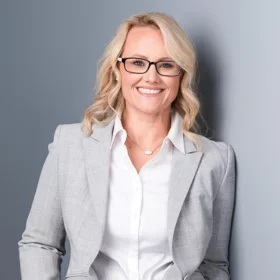**The following Q&A by David Zax appeared in the August issue of the Crain Currency.
Bill Woodson wrote the book on family offices — literally (The Family Office: A Comprehensive Guide for Advisers, Practitioners, and Students).
He also is executive vice president and head of strategic wealth advisory and family enterprise services at SVB Private, a Santa Clara, California-based division of Silicon Valley Bank that in 2021 had $211 billion of assets under management. Woodson spoke with Crain Currency about how new money is different, purposeful investing and how part of a family-office professional’s job is to help with one aspect of parenting.
Part of your career has focused on those with Silicon Valley wealth. How is this newer wealth different from, say, the Rockefellers’?
What is different about this generation of wealth is that they want to do more good with their wealth sooner. They want to be much more philanthropic sooner, to embrace ESG and impact sooner. Many are not looking, candidly, to leave a significant amount of wealth to their heirs. The focus of the next generation has changed, and I think the avenues for them to use their wealth for good are far greater now.
How do you help your clients make purposeful investments?
One of the ways we help is we connect them. So we connect new money to more established money already doing stuff in their area of interest. For instance, some very prominent families have created funds or consortiums with other families, and a number of those are in ESG. Second, just given SVB’s roots, we have relationships with venture capitalists, PE firms and portfolio companies, many of which are investing in innovative companies focused on sustainability. Increasingly, academic institutions are involved — Stanford in particular, which just launched its School of Sustainability associated with John Doerr. So we have access to what Stanford is doing, for instance.
What’s one example of an ESG investment you’ve helped a family with?
One example is vertical farming [growing crops in stacked layers, often using soil-free techniques like hydroponics], which has really emerged as a much more sustainable way to grow the food we eat. We’re familiar with some leaders in that area, so if someone is interested in not just learning more but investing, we can make introductions and have.
Does an introduction always lead to investment?
It depends on the family you’re talking to. If the family is really just getting started, sometimes we will introduce them to professionals just to help hone their interest in the space. As we get to know families, they might say, “We’re interested in X, Y and Z.” And if we have insights into who’s doing different things, we can make an introduction. In those cases, we’re not advocating for a particular investment. We’re just connecting people to people.
What lessons can you share with respect to succession issues?
For every family I’ve known, one objective is raising well-adjusted children. There is a natural dovetailing between the next generation’s interests in philanthropy and ESG, and the goal to develop children as future stewards of wealth — and in a way that interests them, so they don’t feel like they’re being taught, even though they are learning.
You’ve been in this space for some time. What do you wish you knew 10 or 20 years ago?
Twenty years ago, I didn’t really appreciate how valuable the right advisers can be to families — because you don’t immediately see the significance of good advice, especially when it comes to this challenge of raising well-adjusted children. The very best families who have addressed that more appropriately than others, you see that the ROI is the kids, the grandkids, the great-grandkids. There are good dynasties, in this country and around the globe, really thoughtful people who, while imperfect, net-net, they’re doing great, not only amongst themselves but within their various professions and their families. The money has enabled them rather than disabled them. I never really appreciated that until I saw these generations grow up.
I hesitate to use this word, but it almost sounds like a good adviser helps with parenting?
I don’t want to use those words, either. But across the globe, there is the phrase “From shirtsleeves to shirtsleeves in three generations.” There’s an Italian version, a Spanish version and a Chinese version of that phrase. The first generation makes the money, and the second generation watches and usually is imbued with those foundational characteristics of hard work and appropriate risk-taking. But then the third generation grows up with wealth and may not be so focused on that. The second generation, given how they grew up, sometimes they don’t think, “I have to invest in the third generation, the ones most at risk, the ones growing up with the means, the surname, with receiving different treatment.” So it’s not that we’re helping them parent better, but we’re helping them appreciate an aspect of parenting that they otherwise wouldn’t focus on, save for our intervention and assistance.


